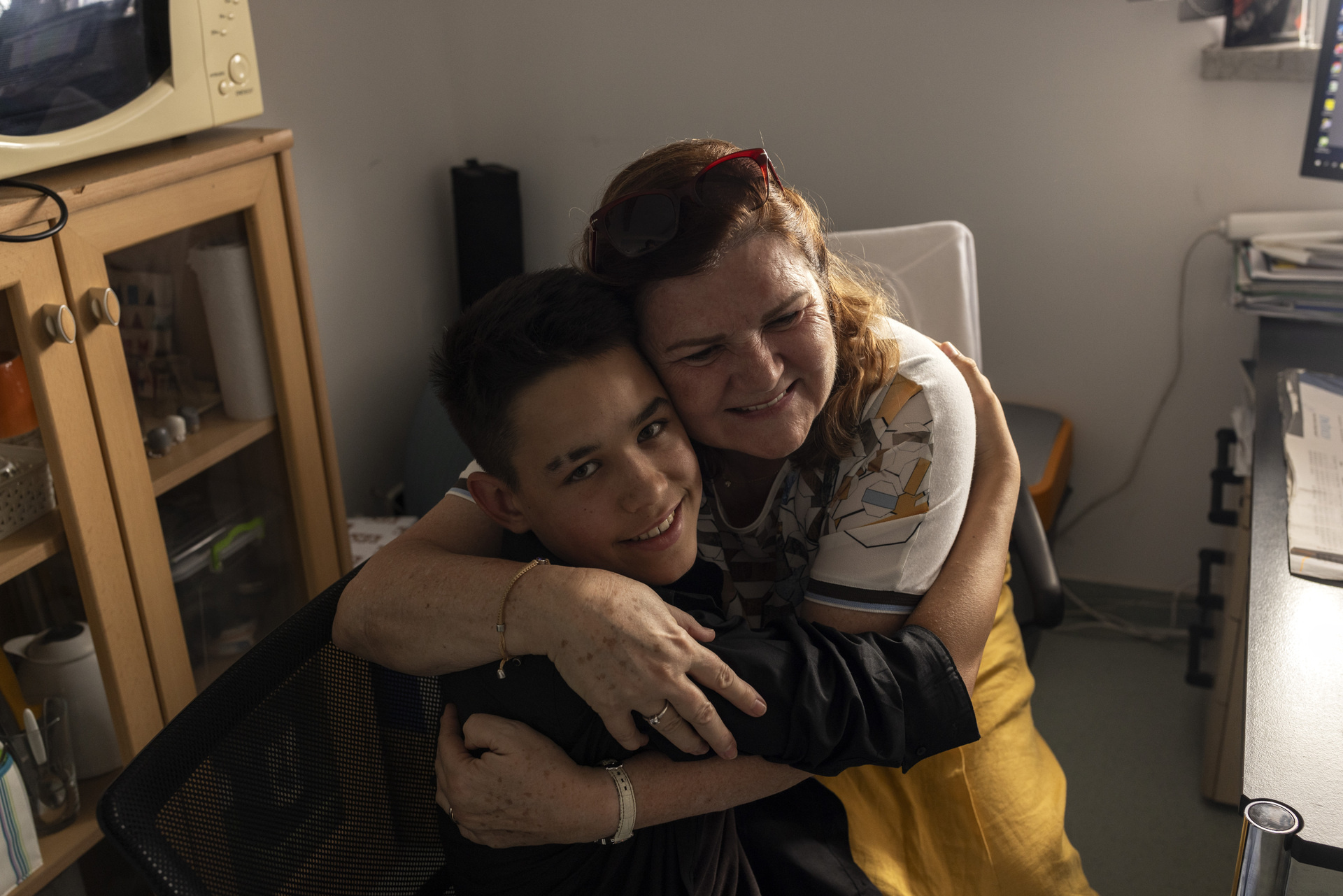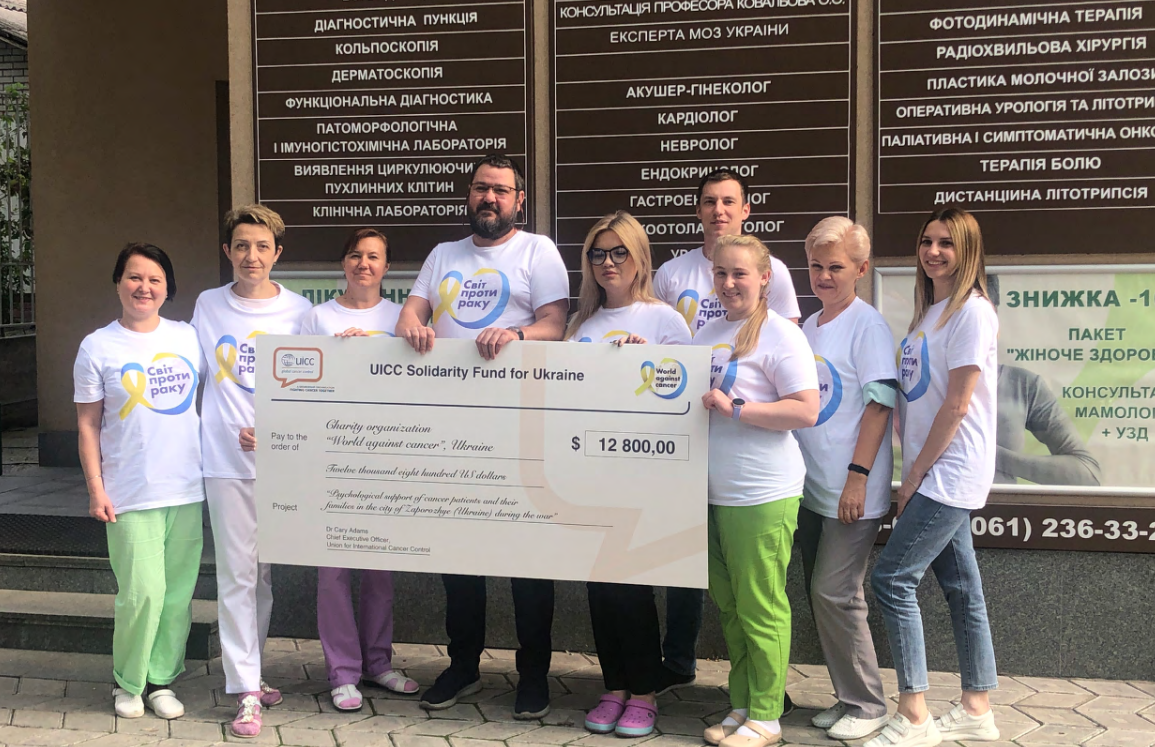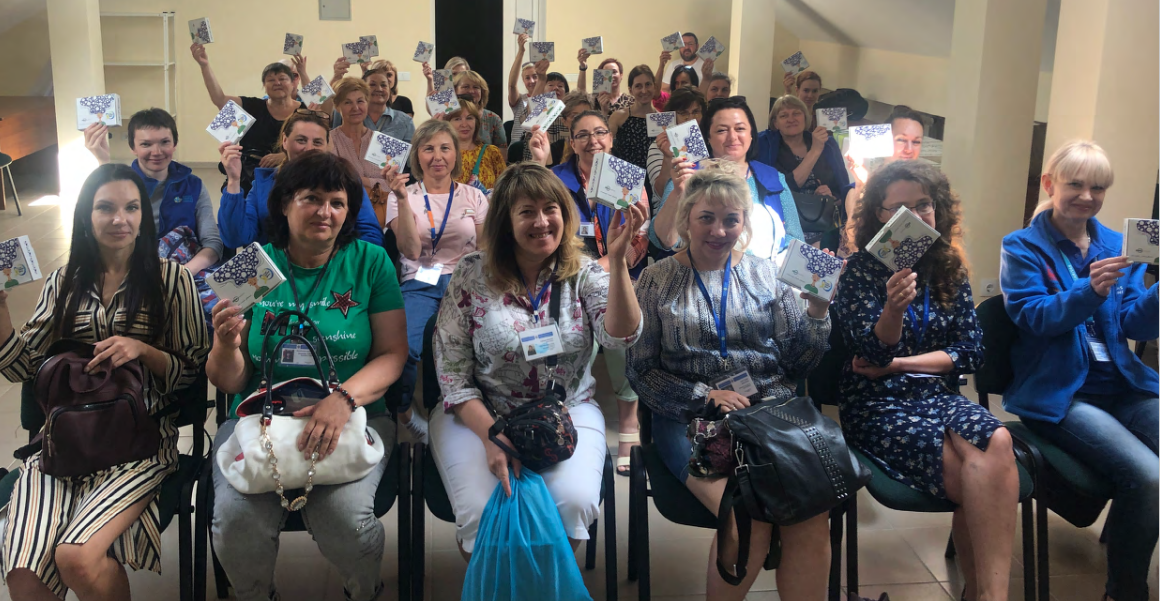14-year-old Artur’s life has been marked by 2 significant events – the escalation of the war in Ukraine and his diabetes diagnosis at the age of 8.
Like any teenager, Artur is keen to fit in with his peers, and despite the warm weather when we meet, he chooses to wear a long-sleeved black t-shirt that conceals the continuous glucose monitoring device which helps to regulate his condition. But Artur is acutely aware of the importance of the device, which he refers to as his “friend”.
Artur was 8 years old when his mother, Viktoria, first noticed that her previously lively and active little boy was constantly fatigued. He had lost his appetite and his skin showed peculiar changes. He was initially prescribed ointment for his skin, but his condition deteriorated.
“When I detected the smell of acetone on his breath, I realized that we couldn’t wait any longer and requested a laboratory test, which showed concerning results. Artur was dangerously close to falling into a coma due to his elevated blood sugar levels.”
When Artur was finally diagnosed, he was quickly treated by doctors in his native Ukraine and learned how to manage his condition. When the country was plunged into full-scale war in February 2022, Artur’s parents quickly decided to move him to neighbouring Hungary in March that year.
Getting treatment for Artur’s condition was a primary concern for the family on arrival in Hungary. They were able to access Ukrainian language information about treatment in Hungary, and Artur soon came under the care of Dr Zsuzsa Almássy at the diabetes unit of the Heim Pál National Paediatric Institute in Budapest.
Dr Almássy’s years of experience working with diabetic children give her a realistic view of how to keep patients healthy; “I believe that we can achieve success through diligent collaboration, but we should occasionally allow for some leniency and relaxation of control. They are children! The goal is to ensure our patients can manage their safety while preserving their good spirits and well-being”.
The hospital has contacted Artur’s new school to offer advice to his teachers about managing diabetes.
Managing his condition for the past 6 years has made Artur more mature for his age. He has had to adapt to being different, and although he knows it isn’t easy, it has helped him to adjust to the challenges of being a refugee in a foreign country.
Over a year after arriving in Hungary, Artur speaks fluent Hungarian. He loves playing football and he feels comfortable asking for help from his schoolmates if he is feeling unwell.
Life as a refugee is not easy, but life as a diabetic can be even more challenging. Luckily for Artur, access to high-quality care and the latest technology means that his condition continues to be manageable.
Around 1.3 million refugees have arrived in Hungary since the outbreak of the war in Ukraine, as of August 2023. About 24 000 of them have applied for asylum status. All the Ukrainian refugees have access to health care for free.





